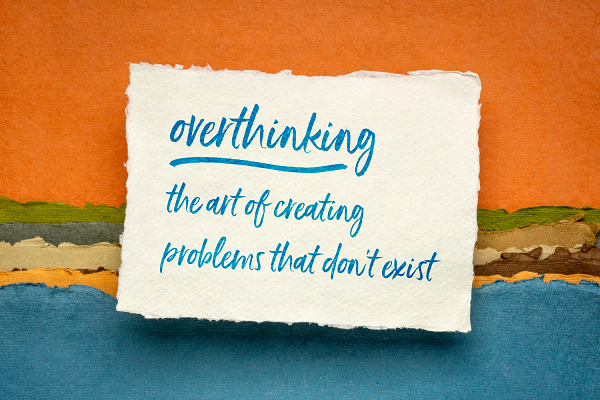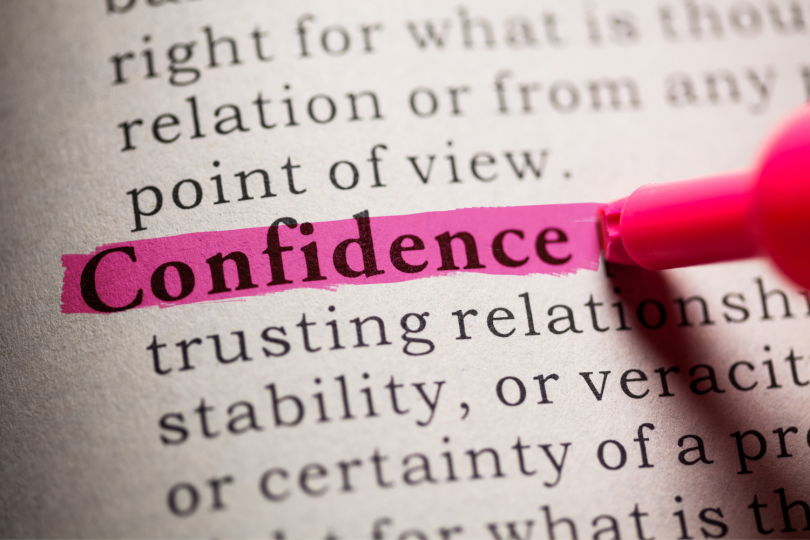Hands up if you’ve ever said, I wish I had more confidence. I bet it’s most of us. I know there have been points in my life where I’ve wished I had more. Just as there are things we can do to build, rebuild, and grow our confidence, so are there habits that break it down, or cause it to waiver.
I’ve put together a list of the main 7 habits that kill confidence and why. These are things that I see in my clients all the time. The good news is there isn’t a single one that can’t be overcome with a little help and hard work. So, I’ve put together a couple questions to ask yourself for each of these habits in order to get you started.
Number one: Procrastination
Procrastination is not about being lazy, it’s usually about being scared; being scared of doing something wrong or doing the wrong thing or being bad at it. Procrastination kills confidence because we don’t take a chance on ourselves.
Moving, even though you’re scared, and trying to be courageous is a huge part of developing authentic confidence so take a deep breath, count down from five, and get it done. Not only will you be proud of your achievement, but you’ll also see that you can do hard things.
Ask yourself when I have done something hard before? What skills did I use to be able to do that thing? How can I celebrate those skills? What will be the benefits of me completing this task? How can I break it down into small steps? What help do I need to make the first move?
Number two: Auto-pilot
I once heard someone say that routine is the killer of creativity, but it’s also a killer of confidence. If you don’t try anything new, how do you know what you can do? How do you grow? How do you move to the next level?
Try mixing up your day, even in just a small way; drive a different way to work, go to a different supermarket, eat dessert first! The more conscious you are of the habits you do on autopilot, the better you’ll be able to do them differently. Who knows, you might learn something.
Ask yourself, when was the last time I arrived somewhere and said, ‘I don’t know how I got here’? When was the last time I tried something new? How could I change my daily routine? How could I be more mindful when completing everyday tasks? Who could help me with this?
Number three: Apathy
Compassion fatigue has been cited as one of the effects of the pandemic where we’ve been so busy looking out for everyone that we’ve just run out of energy. This can lead to apathy, where we just don’t care anymore, not only about others but about activities or about ourselves.
This kills confidence because if we cannot take care of ourselves, we cannot take care of others, nor will we have the energy to build our confidence as needed. If you feel burnt out, exhausted, or you have just stopped caring about things, it’s important to rest.
Ask yourself, what things bring me joy in my life? Do I make time to do these things? How can I get more of these in my week? Am I getting enough rest? Am I giving my body the energy it needs? Do I feel I need something more than the care I can give myself? Where can I go for help?

Number four: Beating yourself up
I’m not against overthinking, there’s a lot to be learnt from unpicking and reflecting. However, negative spirals kill confidence because they drown out all the positives about yourself and fail to recognise the skills you have.
I have found beating ourselves up to be one of the main concerns with individuals I work with who consider themselves to be perfectionists or people pleasers; those who fear letting people down and therefore are hard on themselves when they make mistakes.
To combat this try asking yourself questions like, are these thoughts about me true? Where have I overcome in my life? What are my strengths? Engaging with these questions will help you shift your mindset to one that can build confidence.
Number five: Unhelpful beliefs
Similar to beating yourself up, having unhelpful beliefs can negatively impact the way we view ourselves and our abilities. The difference is that unhelpful beliefs might have been ingrained in you for years and therefore might be harder to tackle.
The stories we tell ourselves about who we are impact the decisions that we make, the opportunities we go for, the friendships that we connect with, and can reduce or increase our confidence. This is because so much of our ability to be confident is linked with our sense of identity.
If you find yourself coming up against an unhelpful belief, try asking yourself, where does this come from? Whose voice is this? Is it really about me? If you’re struggling to answer those questions or need support to unpick them, please reach out for support.
Number 6: Lack of direction
Where am I going? This is a question I sit and ask myself on a regular basis because without it I feel myself being pulled in all sorts of directions and losing the essence of myself. This has a detrimental impact on confidence levels.
Having a big goal and small actionable steps to help you get there is great way to empower yourself. Remember to check in with those goals and actions regularly to keep you on track and find some accountability if you need it.
Ask yourself, where do I see myself in 5, 10, 15 years? How do I want to feel when I get there? What one thing could I do now to help me work towards that goal? How could I create a visual reminder of the goal I am working towards? Who could help me plan my way to my goal?
Number 7: Breaking promises to yourself
How many times have you said you yourself, I am going to… and then haven’t valued yourself enough to follow through? This is killing your confidence! However, it’s important to make sure those things are fit for purpose and not setting you up to fail.
I AM goals are a framework that I created to help build confidence through reaching milestones. So the next time you say ‘I am going to…’ think of I am as I AM: impactful, achievable, and meaningful. By making goals in an intentional way, you’re much more likely to be successful.
Ask yourself, what impact is this action going to have in the short and long term? Is it realistic given the other commitments I have in my life? Am I using meaningful language, so I know what I need to do next? How will I celebrate reaching my goal?
As I said these are some of the key confidence killers I see in my work as an Authentic Confidence and Resilience Coach. If you would like to learn more about authentic confidence and the work I do, please feel free to get in touch with me.



